Throughout the world, users of cannabis swear by its therapeutic effects in the treatment for anxiety.
In the UK, 1.4 million people use cannabis to self-medicate.[1] The amount of scientific studies linked to the potential health benefits are increasing and there’s a lot of anecdotal evidence to be found whether online or when talking to people who use herbal remedies.
It has to be said, however, that while cannabis has many beneficial properties, there are also risks. These risks are amplified when a person uses cannabis illegally because the substance is unregulated.
Cannabis is a very interesting substance. In relation to anxiety, it has the potential to be helpful but also could lead to serious negative effects.
What is cannabis?
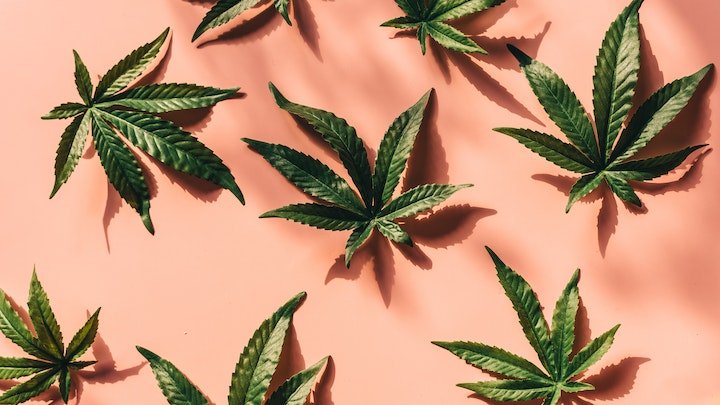
Cannabis is a plant that is also used as a psychoactive drug. It has three main strains:
- Cannabis sativa
- Cannabis indica
- Cannabis ruderalis
The first two strains are used for their perceived desirable effects and medicinal properties by people throughout the world. While there are 120 active ingredients, the two main active compounds that people are interested in are THC and CBD.
In some countries cannabis use, possession, and supply are legal, in others, it isn’t. In the UK, THC strains of cannabis are a class B drug with possession holding up to a 5-year prison sentence.
CBD strains are legal which is why it’s possible to buy in specialist high-street shops, supplement stores, and pharmacies.
Illegal cannabis users use buds, leaves, and seeds for their properties. The leaves and buds can be smoked, it can be turned into oil and dropped under the tongue and it’s also eaten (i.e. in “hash cookies”).
What’s the difference between CBD and THC?
As mentioned, THC and CBD are the active chemicals in cannabis.
One of the effects of THC is that it’s psychoactive meaning that it directly impacts the brain.
This causes people to experience the following:
- Feelings of happiness
- Feelings of relaxation
- The “giggles”
- Sleepiness
- Confusion
- Anxiety and panic
- Paranoia
CBD is nonpsychoactive meaning it doesn’t alter how the brain functions or your perception.
It does, however, have other effects including:
- Feelings of relaxation
- Sleepiness
- Reduced anxiety
- Reduced inflammation
What’s the difference between street and medical cannabis?
The main difference between street and medical marijuana is that the first is illegal and the latter is legal.
What this means is that illegal strains are unregulated. Over the past twenty years or so, cannabis has become incredibly strong with “super skunk” strains being regularly grown and used.
Many use cannabis to self-medicate and try to manage symptoms linked to mental and physical health but there’s no professional guidance to follow around the type to take or the dosage. Most users smoke illegal cannabis, sometimes it’s eaten.
Medical cannabis is any product that has cannabis derivatives that are legally certified and prescribed for particular conditions. In the UK:
- Nabilone can be prescribed for nausea linked to chemotherapy. It can also increase a person’s appetite.
- Nabiximols can be prescribed for multiple sclerosis.
- Epidyolex can be prescribed for epilepsy.
These prescriptions have to be made by a doctor and taken following guidelines around dosage. They tend to come as sprays that are squirted into the mouth.
The benefits of cannabis
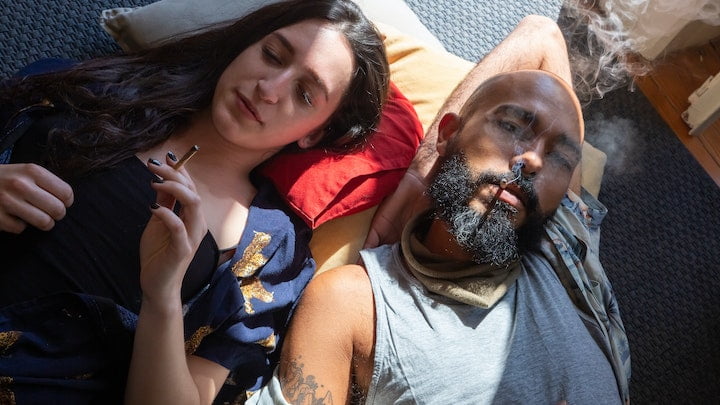
It’s important to recognise the benefits of legalised cannabis use when prescribed to treat a medical condition. CBD in particular has many benefits including the ability to reduce pain and inflammation. It’s also really helpful in promoting relaxation and sleep.
In terms of illegal cannabis use, many users offer anecdotal evidence of how it supports them to relax, sleep, and manage pain.
Sadly, illegal strains are more likely to cause harm because of the chemicals used to grow them, the high potency, and how people take in the chemicals – through inhalation.
The negative effects of illegal cannabis use
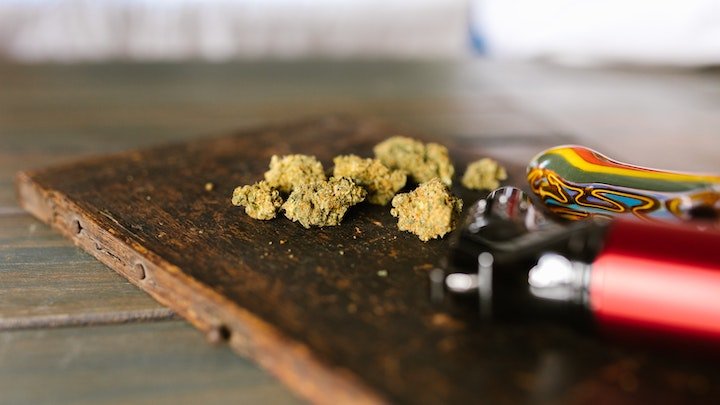
There are many adverse effects of cannabis use when it’s used illegally. The psychoactive effects can have a serious effect on mental health and are actually linked to causing generalised anxiety disorder, social anxiety disorder, psychosis, and schizophrenia.
Physically, smoking weed means you’re taking it into the lungs. This is actually a form of toxic inhalation.[2]
Even where people feel it helps, it has to be pointed out that cannabis doesn’t deal with the cause of any mental health symptoms that people might be trying to self-medicate in the same way that therapy, developing self-awareness, and managing triggers do.
Symptoms of anxiety
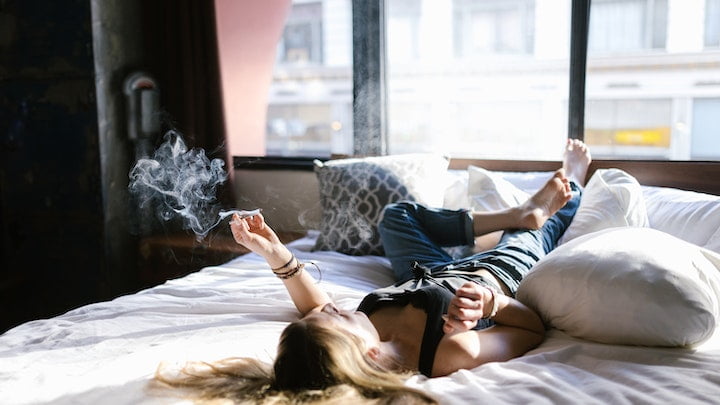
Before thinking about whether cannabis helps with anxiety symptoms, it’s useful to be reminded of what anxiety feels like:
- Feelings of restless
- Feelings of overwhelm
- Heart palpitations
- “Buzzing” fingertips and “butterflies” in the stomach
- Dizziness
- Loss of appetite
- Insomnia
- Feelings of dread and panic
What helps in the treatment of anxiety?
There are different forms of anxiety treatment within various approaches as well as in general.
Visiting a doctor in the UK might mean that you’re prescribed selective serotonin reuptake inhibitors (SSRIs) which are anti-depressants that are also used to treat anxiety. Benzodiazepines which are depressants are also used. Medications can, though, cause addiction.
Psychotherapy offers various ways to process emotions and anxiety including emotional freedom therapy (a form of body tapping), journalling, and cognitive restructuring.
Herbal remedies for anxiety include valerian, chamomile, lemon balm, ashwagandha, and CBD oil.
In holistic approaches, anxiety might be treated through hypnotherapy, music therapy, meditation, and grounding techniques.
It’s also commonly agreed whatever approach you take to manage anxiety that people should also reduce any caffeine, alcohol, and drug intake as well as eat a healthy diet.
Does cannabis cause anxiety?
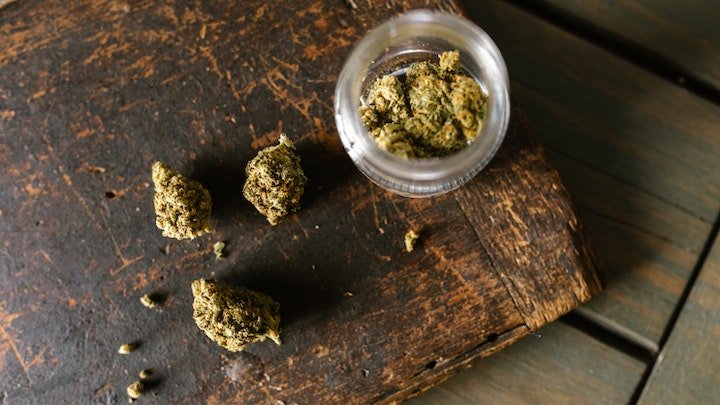
As you’ve probably noticed one of the potential side effects of illegal cannabis use is feelings of anxiety. Panic disorder is also linked to it. Other mental health conditions linked to cannabis use are psychosis and schizophrenia.[3]
It’s important to remember that these consequences are usually a risk where a person has a natural predisposition for mental health issues. It’s more likely cannabis will cause anxiety in people who were likely to develop it anyway.
Another important point is that the anxiety caused is associated with those who take in high amounts of THC. CBD is not linked to anxiety.
Does Smoking Cannabis Lead to Anxiety When You’re Sober?
If you smoke cannabis regularly you can experience ongoing anxiety. This is because it takes a while for THC to fully leave the body.
In fact, on initially quitting cannabis, anxiety can significantly increase as your bodily systems react to the absence of the substance.
It takes a little while for brain chemicals and hormones to rebalance.
While many people defend cannabis use and its effects, there are many who experience low motivation and social anxiety with frequent and ongoing use. This can be especially difficult to navigate.
Does Cannabis-caused Anxiety Ever Stop?
Yes, cannabis-caused anxiety will, with time, stop. It does, though, require effort to learn new coping mechanisms that activate the parasympathetic nervous system (that facilitates rest and relaxation).
If you’re experiencing anxiety as a result of cannabis use, or are unsure and think you started using cannabis to ease the feelings of anxiety, then professionals are likely to diagnose a dual diagnosis. This is where you have two conditions; addiction and a mental health illness.
In such cases, treatment for both is advisable.
Can cannabis use treat symptoms of anxiety?
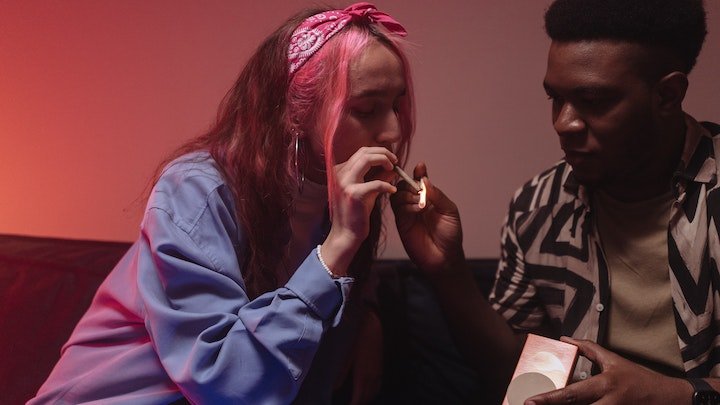
As already discussed CBD is very effective in the treatment of various health conditions including chemo-related nausea, cancer pain, epilepsy, and multiple sclerosis.
Low-dose CBD oils, sprays, and plant buds are available in various shops in the UK. In some specialist shops, higher-dose products are available (worth discussing with the retailer and your doctor).
While there aren’t many human clinical trials, there are many animal studies and user surveys that suggest that cannabis is useful in treating anxiety and post-traumatic stress disorder.
CBD is also known for its relaxation effects and in promoting sleep. In order for either of these to occur, anxiety is usually at a minimum.
While self-medicating with CBD can be said to ease symptoms of anxiety, it’s not classed as “treatment” unless usage is under the guidance of a doctor.
It must also be remembered that THC strains of cannabis are linked to anxiety and panic, especially for those who are genetically predisposed.
How is CBD taken?
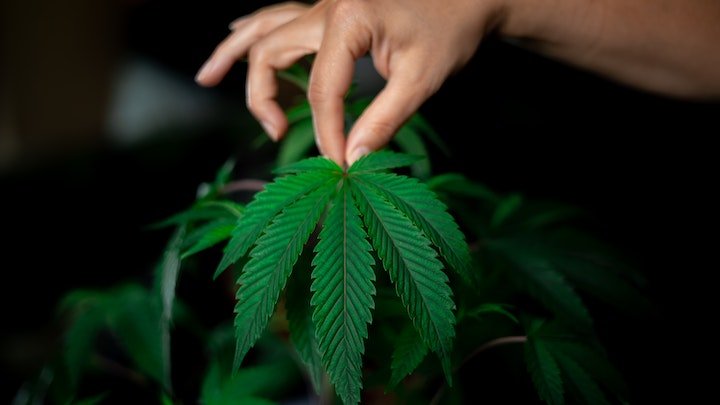
There are a few different ways that CBD is taken. Nowadays you can buy buds and vapes in CBD shops which are obviously smoked.
As well as this, there is a wide range of different strength oils which come in small bottles with pipettes that allow you to administer a couple of drops under the tongue.
CBD can also be eaten with sweets, chocolate, and cookies, and drunk in soft drinks, teas and coffee. Some people prefer to use skin balms and lotions to apply them topically if they’re experiencing aches and pain.
The risks of Self-Medication
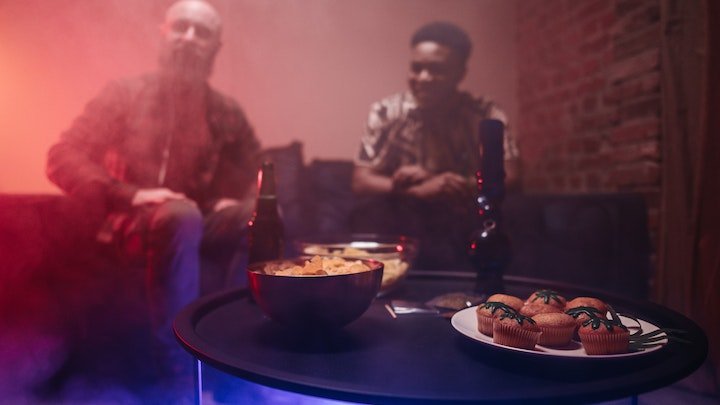
There are few things that need to be kept in mind when it comes to self-medication with cannabis:
- It’s easy, if you’re not a doctor, to incorrectly self-diagnosis. This means that a real and dangerous condition could go missed if you start masking symptoms with cannabis use.
- Some people might experience adverse reactions to cannabis use, especially when there are no guidelines about how much to take and how often. As well as this, there could be dangerous interactions with any other medications you might be on.
- You risk worsening the condition that you’re attempting to treat. The prime example here would be thinking “Cannabis treats anxiety” and choosing a THC strain which is linked to causing anxiety.
- Using THC strains of cannabis carries the risk of addiction. This introduces a complex illness that affects mental, physical, and social consequences.
- Self-medicating symptoms of anxiety actually mean you’re not treating the cause. Addressing the cause means anxiety is likely to be much more successfully managed and controlled in the long run (rather than masked).
Rehab treatment for cannabis addiction
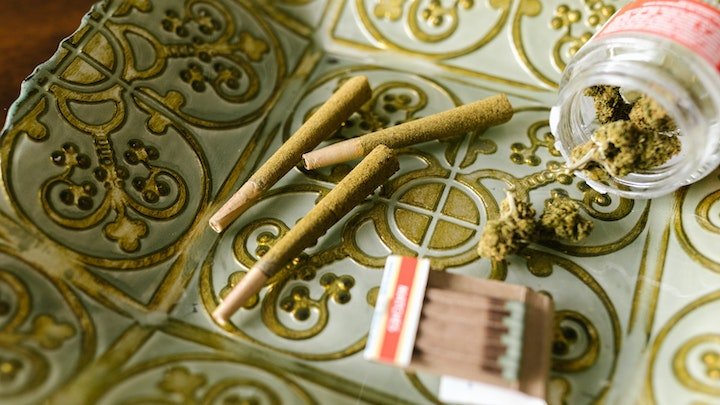
If you have developed a cannabis addiction or have a dual diagnosis of cannabis addiction alongside anxiety then you’ll want to find suitable treatment. Mental health care is sometimes difficult to access in the NHS when an addiction is present.
Private rehab clinics offer support and treatment programmes for people with cannabis addiction as well as anxiety.
There you’ll go through a detox period where you’re supported by a medical team to get off cannabis. As this can be a time when anxiety flares up, medications might be prescribed to help you through the early withdrawal stage.
From here, you’ll then begin therapies and group activities that all support you in managing addiction so that you can make a full and healthy recovery.
Final thoughts
Cannabis use can both lead to and ease anxiety. This is due to a number of factors. THC strains can exacerbate anxiety, while CBD strains are known to reduce anxiety.
The main issue with self-medicating with illegal cannabis strains in the UK is that the substance is unregulated and highly potent meaning adverse effects are a real risk
If you’re living with moderate or severe anxiety then it’s advisable to seek help from a mental health care professional. This might be through your local GP or a psychotherapist.
FAQs about cannabis and anxiety
Below, we provide answers to common questions about the topic of anxiety and cannabis:
Can medical cannabis be used for anxiety or stress?
Medical cannabis includes legal and certified products that have cannabis compounds in. In the UK, it’s prescribed for specific conditions such as epilepsy and nausea linked to chemo. Guidelines around use should be followed. There aren’t any certified “medical” cannabis products currently being prescribed for anxiety or stress on the NHS.
Does weed help anxiety or make it worse?
Weed can both exacerbate anxiety and ease it. This is really dependent on the strain that is used. THC strains are associated with anxiety in some users. CBD strains are reported to reduce symptoms of anxiety.
Is there a strain of weed that won’t heighten anxiety?
CBD strains of cannabis are linked to relaxation and reduction of anxiety. It’s worth discussing what CBD products and dosage is appropriate for your needs with a herbal practitioner and your doctor.
References
[2] https://www.sciencedaily.com/releases/2021/01/210111084226.htm





